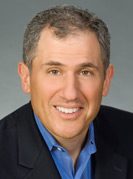Enjoy this “newspaper clipping” from the CoventryTelegraph.net, February 19, 2010 about my sister-in-law, Toyah Willcox, pop music icon; it also talks about my brother, legendary guitarist Robert Fripp.
Pop Icon, Toyah Willcox Takes New Band on the Road

THE lady in the thigh-high boots and flaming basque-cum-breastplate
is unmistakably Toyah Willcox – the stack-heeled wench with her back to
camera requires a tad more explanation.
“Ah yes,” says Toyah, “that’s John Wayne!
“He’s
actually a transvestite who owns a nightclub in Stoke-on-Trent – I met
him because he’s a Toyah impersonator and now he’s my PA.
“He was there when we were making our video and the director said ‘right John, get your gear on, we’re filming you’.”
Toyah
(the surname has been superfluous since It’s A Mystery provided her
breakthrough hit in 1981) supplies the information in a matter-of-fact
tone which confirms that the bizarre is perfectly normal in her world.
But
she becomes far more animated, genuinely excited, when she gets down to
details about the ‘we’ in question – The Humans, latest project in her
long, multifaceted and highly successful career.
The
band, who kick off a three-date UK tour at Leamington’s Assembly on
Monday, features Bill Rieflin – better known as REM’s drummer – Chris
Wong and, temporarily, Robert Fripp, founder of King Crimson and, since
1986, Mr Wilcox.
And, naturally enough, they were formed as a treat for the president of Estonia.
To
précis a long story: “The Estonian embassy was trying to get hold of my
husband but I got in touch with them and said ‘look I could be out
there with two international musicians in a couple of weeks – we can
write all the material in Estonia and play exclusively for the
president. And that’s exactly what happened – it went down a storm and
we ended up selling out their biggest rock venues.
“I totally blagged my way in, but then a lot of my life is about blagging. If you’re a woman you have to have that ability.”
Despite its improbably impromptu genesis, the band fulfils a longstanding ambition for Toyah.
“I
wanted to put together a band that could travel very easily and very
spontaneously,” she says. “That’s difficult these days because the
equipment is so bulky – you need lots of personnel, loads of
rehearsals. In the past 10 years I’ve been playing arenas on the ’80s
tours with audiences up to 60,000 but I wanted something that was
portable and immediate.
“And this is so exciting because it involves three people that I really admire and enjoy working with.”
Fripp’s
involvement in the current phase of The Humans’ development is a major
bonus for a couple whose career commitments mean that they spend long
periods apart, but Toyah stresses that he is a ‘guest star’.
“The idea is that we’ll have a different one for every tour,” she says. “Somebody doing something that they’re not known for.
“For
instance we’re hoping to get Steve Vai – everybody knows that he’s a
great guitarist but he also plays the harp. His wife is a harpist and
he does all her arrangements so that would be fascinating.”

Artists can sometimes get decidedly sniffy if
interviewers attempt to pin down their sound, but Toyah, fortunately,
warms to the suggestion that there is a Brechtian feel to The Humans’
music.
“That’s a nice comparison,” she says.
“It’s not 100 per cent because there’s a lot of energy and we’ll be
playing some new stuff which is very Seattle grunge, but it is a
listening experience rather than the ‘come on everybody sing along’
when I’m out there as Toyah. And, yes, it is a bit dark and bleak – the
Humans’ world is permanently in winter!”
That being the case,
long-term fans expecting a quick chorus of Thunder In The Mountains or
Brave New World will be disappointed.
“We will be doing some
hits, but they’re not Toyah hits,” she says. “That’s not a possibility
because we are so peculiar – it’s not a band set-up – it’s two bass
players and a guitar and vocals.”
At a time when every week
seems to produce a new feisty female chart-topper, one wonders if Toyah
sees herself as a pioneer of rock emancipation.
“Not really,”
she says. “Take Florence & The Machine – we’ve got the same
performance genes, perhaps, and I can totally identify with the whole
thing where the emotion leads the vocal, but I don’t think I’ve
influenced her.
“I think if I’ve influenced anyone you’ve got
to look at artists who are deliberately 80s retro like La Roux. There
might be a little influence there but I really think that these kids
have just discovered themselves at a time when 80s is suddenly so hip.
“When
I started, women weren’t running the industry like they are now. It was
a real breakthrough time, exciting but really challenging because every
woman – myself, Hazel O’Connor, Kim Wilde – were always being compared
with each other because of the novelty value of being a woman.
“I
was strident and bombastic at a time when England was very
conservative, especially about women, so I definitely feel that I
helped push the boundaries. But there are so many women out there today
that we don’t need to compare them with each other.
“They’re
being taken seriously now, not just as performers but as women. And
that’s massively important because women were once treated as objects.
The prime example is Madonna – if she had been overweight with a hairy
face, she wouldn’t have been as successful as she was.
“There
are exceptions. If you’ve got a truly unique voice I don’t think it
matters what you look like, whichever sex you are, but most of the time
it really does help if you look good.
“It is about sexuality, but to be taken seriously on top of that is a remarkable step forward.”
Now 51, Toyah has been completely open about the surgical help she has employed to maintain her glamorous image.
“Sexual
attraction is part of the act – I went into showbusiness knowing that
was the case so it’s never been any other way. That’s my choice because
I know the powerful effect it has on my income.
“I’ve
had some surgery because it’s a well-developed science now, regulated
and relatively safe in this country, and I think I would have had it
done even if I hadn’t gone into showbusiness.
“What’s
interesting is that I work very hard to stay in shape and those around
me who don’t are quite threatened by it – particularly men.
“My
fellow band members are quite perplexed by my willpower which is a very
interesting situation – it seems to eat at their confidence.
“My husband is very open and honest and sometimes he says to me ‘I can’t compete with what you do’.
“Which is great, because I can’t play guitar!”
This was clipped from the CoventryTelegraph.net website:
http://www.coventrytelegraph.net/whats-on-coventry-warwickshire/music-news/rock-pop/2010/02/19/pop-icon-toyah-willcox-takes-new-band-on-the-road-92746-25870861/
Robert Fripp’s spoken word CDs are unique and enlightening: https://fripp.com/product/robert-fripp-mega-pack/
For more information on Robert Fripp and his speaking engagements in North America, visit:
http://robertfrippspeaks.com/
Read More...




